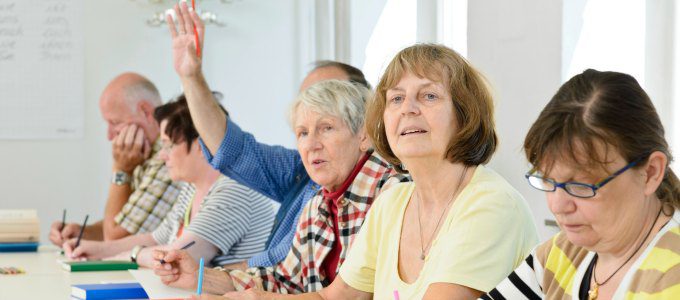In fourth grade, I was a spelling whiz kid who could rattle off the 12 letters of “rhododendron” without blinking an eye. But there was one word that I got wrong on a test: stomach. I added an “e” to the end, and that mistake would haunt me to this day — hence the reason I remember my irrational hatred for the word and haven’t spelled it wrong since.
That’s a perfect example of learning from a mistake, a process we all recognize as part of academic, professional and emotional development. But a 2011 study from Baycrest Center for Geriatric Care's Rotman Research Institute in Toronto shows even though most of us learn by trial-and-error as kids, older learners get just as much of a benefit from making mistakes while learning.
This research angle is important for an aging workforce where Gallup reports the average retirement age is 62 and set to continue climbing. Employees have to keep learning new procedures and policies — not to mention technology changes that affect the way business is done — all the way until they get their gold watch and retirement party.
The finding clashes with previous assumptions that an older brain’s decaying memory would interfere with learning by mistakes — after all, if you can’t remember your mistakes, how can you learn from them?
As it turns out, healthy but aging brains do remember mistakes, and sometimes do it better than younger minds. There’s a caveat, however: Learning through mistakes only applies if the errors are made are somehow connected to the answer. For example, someone asked to guess a word that starts with “FL” who answers “floor” is more likely to remember the right answer is “flower” than someone who answers “stomach.” Note, again, there is no “e” at the end of “stomach.”
“Our fear was that mistakes would stick around and interfere with memory,” said Andrèe-Ann Cyr, a doctoral and research associate at York University who led the study. “But we found the older adults … were able to capitalize on good semantic memory.”
Cyr said the original preconception that older brains have worse memories likely came about because studies that contributed to that conclusion included dementia or Alzheimer’s patients. Her research was one of the first studies where participants were healthy, functioning Boomers and older.
“A lot of older adults are still in the workplace, not like our grandparents’ generation,” Cyr said. “They’re still working, and even the ones not working are still engaging in lifelong learning by enrolling in university courses, learning new tech. So we need to expand or definition of student to include people over the age of 65.”















